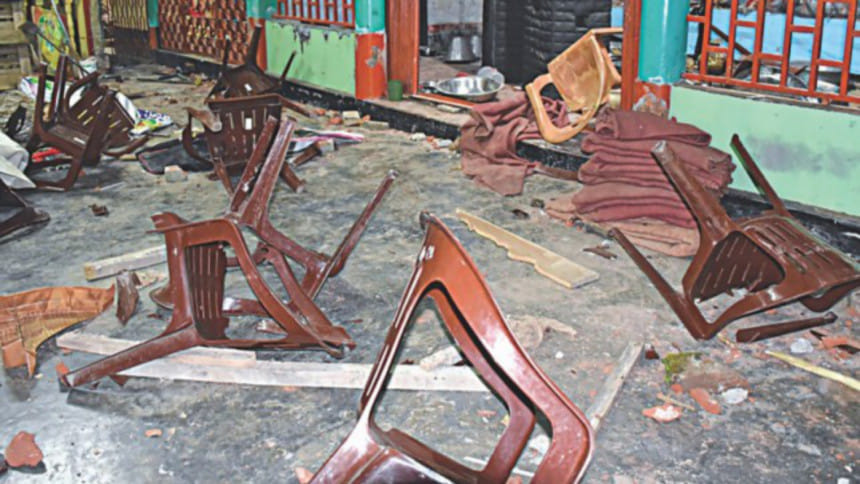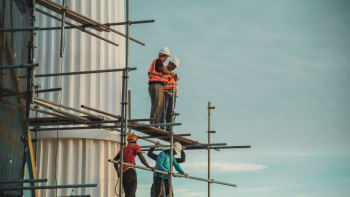Ominous attack in Bhola and the imperatives

In this newspaper it has been editorially observed that "circumstantial evidences gathered so far leave no doubt in our mind that the Bhola incident did not happen, it was made to. And the purpose was very clear—to embarrass the government and to show that our claim of universal religious tolerance is based on a weak foundation." Such comments are indeed matters of grave public concern and while citizens will expect a comprehensive enquiry to find out the causative factors of the incident, the culpability of individuals and quarters responsible and remedial measures, it is also time to ascertain as to why the tolerance threshold and mischief-mongering of a section of our people has reached an unspeakable level.
Quite clearly, the incident in Bhola not only embarrasses the government, it also portrays the entire polity in a very abominable shade. In fact, the incident and the aftermath in which religious minority individuals and their properties were attacked and vandalised, seriously offends our democratic sensibilities and questions our pluralist ethos. We have to admit that attacks on minority communities and their property have demonstrated the immensely sad but blunt reality that even after 48 years of independence, these communities remain vulnerable to diabolic communal assault.
On a sub-continental perspective, one could speak volumes about the genesis of communal friction tracing as far back as the conquest of India by Muhammad Bin Kashim. Others could refer to the communal award of early twentieth century by British colonial rulers that according to them was a corollary to the divide and rule policy; still others would point an accusing finger at the two-nation theory resulting in the partition of India on communal lines that according to them sanctioned communal politics.
The debate on the origin of sub-continental communal divide and the resultant tension, as also the identification of the malevolent actors, could go on indefinitely without producing durable solution for the sufferers. Hence, it is time to find out whether or not the number of Hindus has decreased over the years, particularly since the creation of the People's Republic of Bangladesh in 1971 and if so, why? Has the mindset of the majority community really changed for establishing the ethos of equal rights society?
We in Bangladesh need to ask whether it is religion per se or the politicisation of religious identity and the mobilisation of this identity for community and state ends that have resulted in communal violence. We also need to find out whether the emphasis is on contests for power and resources.
Experience indicates that quite often the outbreaks of communal violence have not been the result of spontaneous outbursts of passionately held religious beliefs; they are carefully planned and orchestrated and occur within a context of political mobilisation. Violence has been facilitated by the ability of officials and criminals to behave and act with impunity. It has been seen that in circumstances in which the State acts resolutely, violence prone situations do not erupt into large scale disturbances.
The question is, in Bangladesh why do we, at times, witness attacks on Hindu properties? Is creation of hatred a ploy for some influential people to grab property? Simple common sense should tell that the ferocity of the attacks is caused by the victims' weakness and the perpetrator's immunity from the process of law. Are the mischief-makers too powerful to be dealt with?
The public leaders cannot be part of a deliberate effort to realign State and cultural power in the interest of the majority because that will result in non-Muslim minorities being defined explicitly or implicitly as second-class citizens of Bangladesh. It is only proper that the flowering of a nation demands proactive action from the State. Finally, let us bear in mind that the concept of "Ummah" in the historic "Medina Charter" included all faiths.
Globally speaking, the subcontinent inclusive, the gradual marginalisation of the minority in public affairs has been a sad spectacle. In such a scenario, Bangladesh should earnestly venture to create an environment wherein the minority enjoys equal rights and is assured of equal protection of the State.
Muhammad Nurul Huda is a former IGP.

 For all latest news, follow The Daily Star's Google News channel.
For all latest news, follow The Daily Star's Google News channel. 



Comments